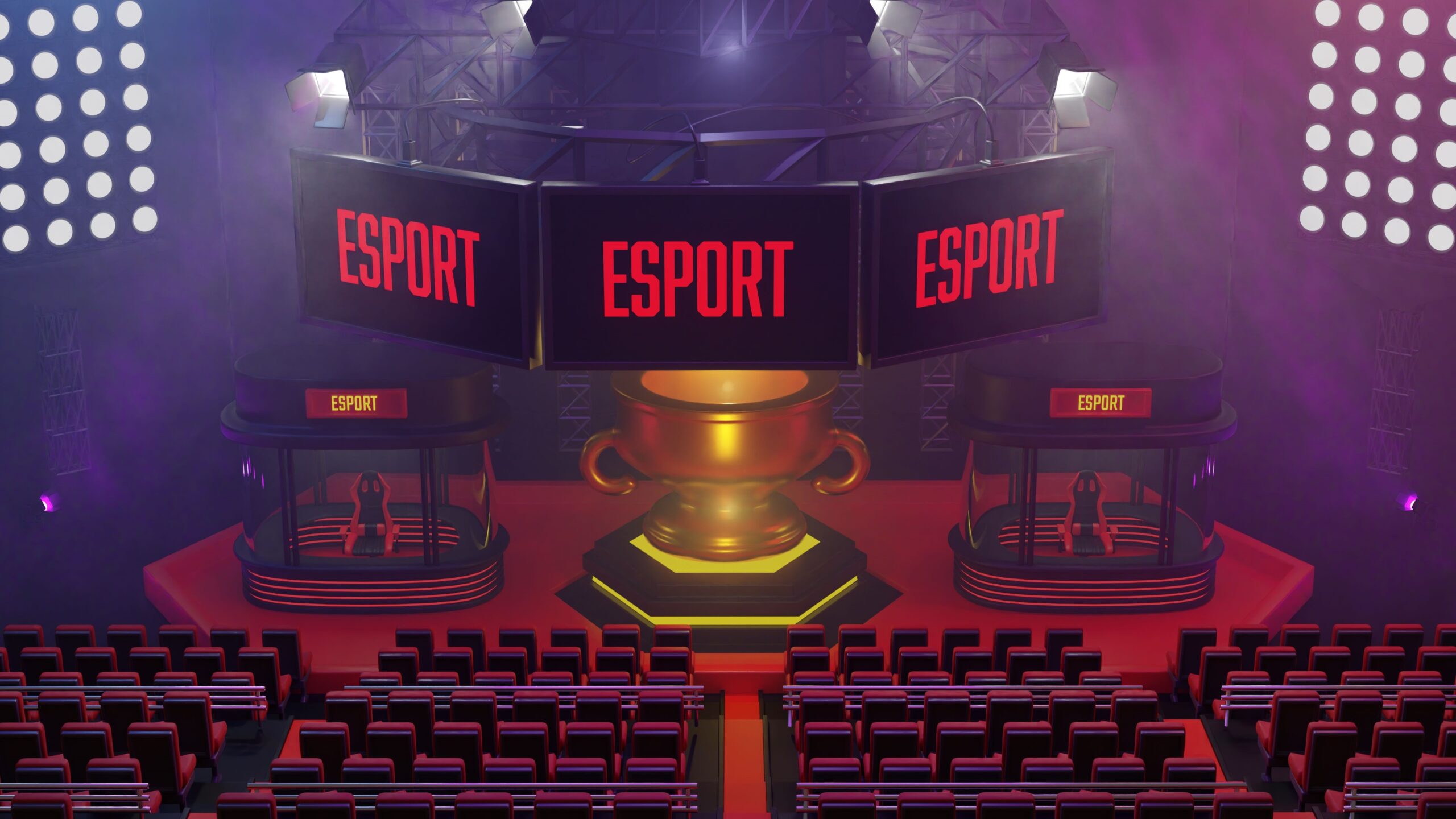If you’re new to the term, eSports, or electronic sports, is competitive video gaming where players or teams compete in games like League of Legends, Dota 2, CS:GO, and many others. It has exploded in popularity worldwide, with millions tuning in to watch tournaments and big-money prizes up for grabs. South Africa is no exception — the gaming scene here is vibrant and rapidly growing.
Popularity of eSports in South Africa
The popularity of eSports in South Africa has been growing rapidly, especially among the younger generation. South African youth are not only avid players but also passionate spectators of competitive gaming events. These tournaments, both online and offline, have sparked vibrant communities that connect gamers, fans, and enthusiasts across the country. This surge in interest has created a unique culture around eSports, where it’s no longer just a hobby but a form of entertainment and social interaction. Events like local championships and international streaming platforms have made it easy for fans to follow their favorite teams and players, fostering a lively eSports environment.
What’s more, this enthusiasm extends beyond just watching or playing games. The rise of eSports betting has added an exciting new layer to the experience. South African fans now have the opportunity to place bets on outcomes, player performances, and match results, injecting a new level of engagement and thrill into the scene. This betting culture is gaining traction alongside the general growth of eSports, contributing to the overall ecosystem and economy around competitive gaming in South Africa. As the market expands, it attracts more attention from regulators, businesses, and bettors alike, signaling a vibrant future for eSports in the country.
Rise of eSports Betting Globally and Locally
Globally, eSports betting has transformed from a niche pastime into a multi-billion-dollar industry in just a few years. Traditional sportsbooks and betting companies have rapidly added eSports markets to their offerings, recognizing the massive fanbase and the potential for substantial revenue growth. This growth is driven by several factors: the increasing legitimacy of eSports as a competitive sport, the accessibility of online betting platforms, and the tech-savvy demographics who prefer digital interaction. Major tournaments with large prize pools attract millions of viewers, creating perfect conditions for an expanding betting market that mirrors traditional sports betting.
In South Africa, this global trend is reflected in a growing interest in eSports betting, with more local sportsbooks beginning to offer eSports markets. However, despite the clear rise in demand, the legal landscape remains somewhat uncertain. Players and operators alike are left questioning the boundaries of legality due to incomplete regulations specifically addressing eSports betting. This uncertainty makes it critical for participants to understand the current legal environment and to choose platforms carefully, ensuring they remain within the limits of South African law while enjoying this fast-growing form of entertainment.
Legal Framework Governing Gambling in South Africa
Overview of South African Gambling Laws
Gambling in South Africa is subject to strict regulation to ensure consumer protection, fairness, and the prevention of illegal activities. The country has established comprehensive laws that govern all gambling activities, including casinos, lotteries, horse racing, and sports betting. These regulations aim to create a safe and transparent environment for both operators and players. The foundation of this legal structure is the National Gambling Act, which sets the tone for licensing, operational standards, and enforcement procedures. This act helps to balance the interests of the government, the gambling industry, and the public by outlining clear rules and guidelines.
Some key elements of South African gambling laws include:
- Licensing requirements for all gambling operators
- Rules to protect consumers from fraud and unfair practices
- Measures to prevent gambling addiction and promote responsible gambling
- Provincial authorities empowered to regulate gambling within their regions
- Criminal penalties for unlicensed or illegal gambling operations
These laws work together to ensure that gambling activities, including emerging sectors like eSports betting, operate within a controlled and legal framework.
The National Gambling Act
The National Gambling Act is the cornerstone legislation that regulates most gambling activities in South Africa. This law defines what constitutes legal gambling and provides a framework for licensing operators, overseeing their conduct, and imposing penalties for violations. While the act specifically addresses traditional forms of gambling such as casinos, horse racing, and sports betting, it does not explicitly mention newer activities like eSports betting. This lack of direct reference has created some ambiguity, making it unclear how eSports betting fits within existing legal definitions.
However, because eSports betting involves wagering on the outcome of competitive events, it is generally interpreted as a form of sports betting under the act. This means that while eSports itself is not directly regulated, betting on eSports outcomes is expected to comply with the licensing and operational requirements laid out in the act. This grey area leaves room for interpretation and highlights the need for updated legislation that explicitly addresses eSports and online digital betting markets.
Role of the National Gambling Board (NGB)
The National Gambling Board (NGB) plays a crucial supervisory role in South Africa’s gambling industry. It oversees compliance with the National Gambling Act and coordinates regulatory efforts across the various provinces. The NGB’s responsibilities include:
- Issuing guidelines and standards for gambling operations
- Monitoring licensed operators to ensure adherence to laws and regulations
- Collaborating with provincial gambling boards to enforce rules
- Investigating illegal gambling activities and recommending enforcement actions
- Educating the public on responsible gambling and consumer protection
In the context of eSports betting, the NGB’s role is especially important as it helps maintain a safe betting environment and encourages the development of legal, licensed platforms. By doing so, it helps protect players from unregulated operators and illegal activities, promoting a trustworthy industry that can grow alongside South Africa’s expanding eSports market.
Specific Laws About eSports Betting in South Africa
Is eSports Betting Classified as Gambling
Betting on the outcome of eSports tournaments in South Africa is generally considered a form of sports betting. This classification is important because sports betting is regulated and legal when conducted through licensed operators. However, eSports differs from traditional sports in that it involves video games instead of physical athletic competitions, which raises questions about whether eSports betting truly fits the same legal framework. Some legal experts argue that because the nature of eSports is different, specific regulations should be developed to address it explicitly. Nonetheless, under current laws, eSports betting is treated similarly to conventional sports betting, which means it must adhere to the licensing and regulatory requirements established for sports gambling.
Despite this broad acceptance, the ambiguity around eSports in the legal texts can create confusion for bettors and operators alike. Because eSports is relatively new, South African lawmakers are still catching up, and there may be future amendments to the laws that provide more clarity. Until then, it’s safest for bettors to use licensed operators who comply with existing gambling laws to avoid legal issues.
Licensed vs Unlicensed Betting Operators
In South Africa, only operators licensed by provincial gambling boards can legally offer betting services, including those for eSports. Licensing ensures that the betting platform operates transparently, follows fair practices, and protects consumers from fraud or unfair odds. Licensed operators must also comply with responsible gambling initiatives and customer protection laws. This legal framework aims to build trust and credibility in the industry, ensuring a safe environment for bettors.
On the other hand, using unlicensed betting platforms is illegal and exposes bettors to significant risks. These platforms may operate without oversight, which increases the chances of unfair play, payment issues, or even scams. Moreover, players betting on unlicensed sites have little to no legal recourse if problems arise. Authorities actively discourage participation in unlicensed gambling and may take action against operators and users involved in such activities.
Regional Regulations: Provinces with Separate Legislation
South Africa’s gambling regulation system is decentralized, with each of the nine provinces having some authority to regulate gambling within its borders. This means that the legality and regulation of eSports betting can slightly vary from one province to another. For instance, the Western Cape Gambling and Racing Board (WCGRB) manages all gambling licenses and enforcement in the Western Cape province, including online betting.
| Province | Regulatory Authority | Role in eSports Betting Regulation | Licensing Status |
| Western Cape | Western Cape Gambling and Racing Board (WCGRB) | Issues licenses, monitors operators | Licensed operators allowed |
| Gauteng | Gauteng Gambling Board | Enforces gambling laws in Gauteng | Licenses required for legal betting |
| KwaZulu-Natal | KwaZulu-Natal Gaming & Betting Board | Regulates betting and gambling | Provincial licensing enforced |
| Eastern Cape | Eastern Cape Gambling Board | Regulates gambling activities locally | Provincial licenses necessary |
Because of this regional variation, bettors and operators must ensure compliance with local rules and obtain the correct licenses to operate legally within a specific province.
How South Africa Regulates Online Betting Platforms
Licensing for Online Betting Companies
Online betting in South Africa is legal only if the operator holds a valid provincial license. This requirement applies to all forms of betting, including traditional sports and eSports betting platforms. Licensing ensures that online operators meet strict standards related to security, transparency, and fairness. The licensing process involves background checks, financial audits, and continuous monitoring to protect consumers from malpractice. By requiring licenses, provincial authorities ensure the integrity of the gambling ecosystem and reduce the prevalence of illegal betting.
For eSports betting platforms, this means they must register and get approval from the relevant provincial gambling board to operate legally. The process can be stringent, but it benefits both the operator and the bettor by ensuring a regulated, secure environment. Licensed platforms are also more likely to provide fair odds, secure payment methods, and reliable customer service.
Impact on eSports Betting Platforms
Many popular global eSports betting sites currently do not hold South African licenses, creating a challenge for local players. While these platforms might offer attractive odds and wide selections of eSports markets, using them could expose South African bettors to legal and financial risks. Since these foreign operators are not regulated by South African authorities, there’s no guarantee of consumer protection or adherence to local gambling laws.
This situation forces South African players to be cautious and prioritize betting on platforms licensed in their jurisdiction. Betting with licensed operators ensures legal protection, transparent operations, and the support of local authorities if disputes arise. The regulatory environment encourages international operators to seek South African licenses, which will improve market reliability and trust over time.




